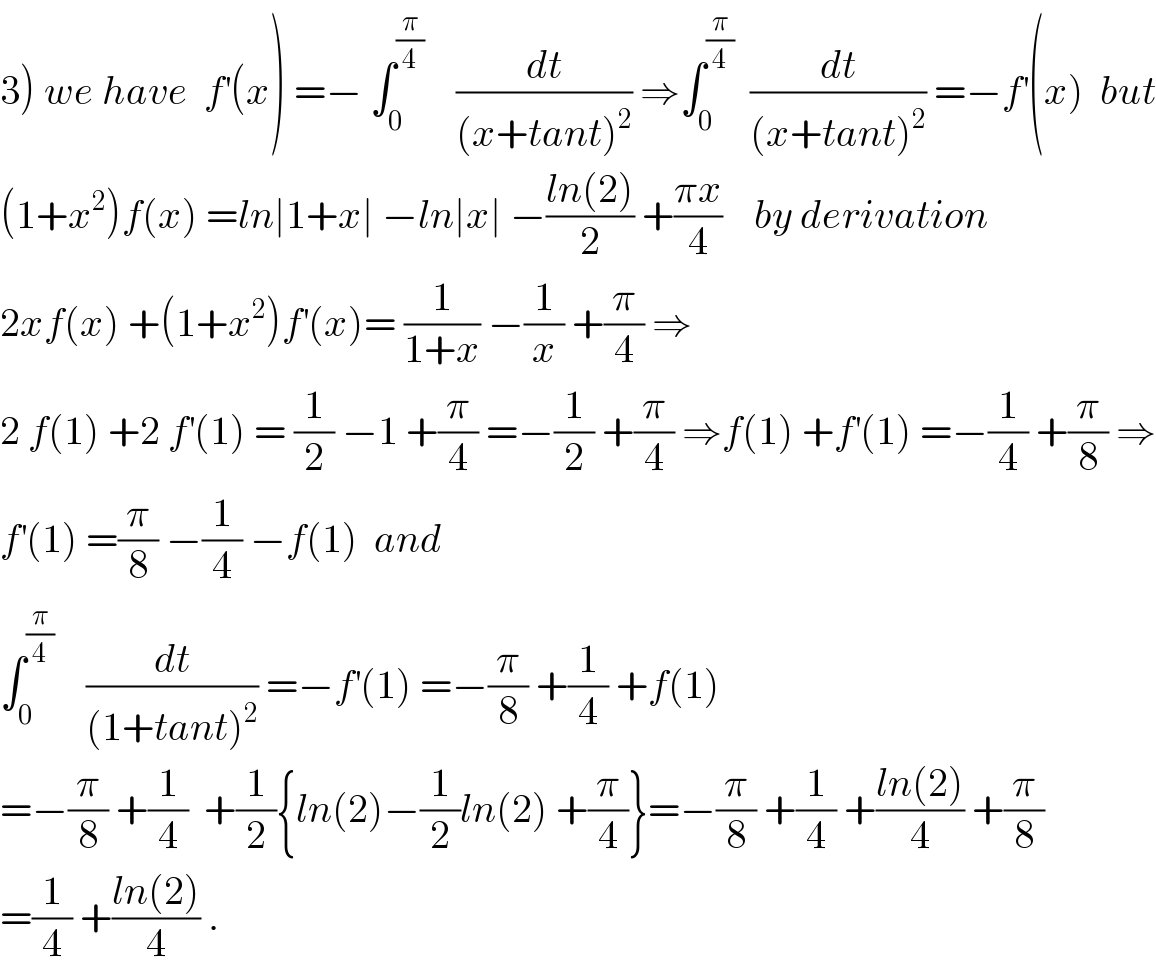
Question and Answers Forum
Question Number 41847 by maxmathsup by imad last updated on 13/Aug/18

Answered by maxmathsup by imad last updated on 14/Aug/18
![1) we have f(x) = ∫_0 ^(π/4) (dt/(x+tant)) changement tant =u give f(x) = ∫_0 ^1 (du/((1+u^2 )(x+u))) let decompose F(u) = (1/((x+u)(1+u^2 ))) F(u) =(a/(x+u)) +((bu +c)/(u^2 +1)) a =lim_(u→−x) (x+u)F(u) = (1/(1+x^2 )) lim_(u→+∞) uF(u) =0 =a +b ⇒b=−(1/(1+x^2 )) ⇒F(u)=(1/((1+x^2 )(u+x))) +((−(1/(1+x^2 ))u +c)/(u^2 +1)) F(0) =(1/x) = (1/(x(1+x^2 ))) +c ⇒1 =(1/(1+x^2 )) +xc ⇒xc =1−(1/(1+x^2 )) ⇒ xc =(x^2 /(1+x^2 )) ⇒ c =(x/(1+x^2 )) ( we suppose x≠0) ⇒ F(u) = (1/((1+x^2 )(u+x))) −(1/(1+x^2 )) ((u−x)/(u^2 +1)) ⇒ f(x) = (1/(1+x^2 )) { ∫_0 ^1 (du/(u+x)) −(1/2)∫_0 ^1 ((2u)/(u^2 +1))du +x ∫_0 ^1 (du/(1+u^2 ))} =(1/(1+x^2 )){ [ln∣u+x∣_0 ^1 −(1/2)[ln∣u^2 +1∣]_0 ^1 +x [arctanu ]_0 ^1 } f(x)=(1/(1+x^2 )){ ln∣1+x∣−ln∣x∣ −(1/2)ln(2) +((πx)/4)}](Q41871.png)
Commented by maxmathsup by imad last updated on 14/Aug/18

Commented by maxmathsup by imad last updated on 14/Aug/18

